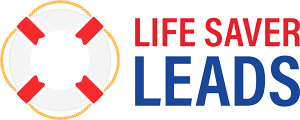CRM, or Customer Relationship Management, plays a crucial role in managing and scaling life saver leads, especially in contexts where timely and accurate information is essential. Here are several reasons why CRM is important in this scenario:

- Efficient Lead Management:
- CRM systems help organize and manage life saver leads efficiently. This includes storing lead details, tracking communication history, and categorizing leads based on their status and priority.
- Efficient lead management ensures that life saver leads are not lost or overlooked, leading to quicker response times and potentially saving lives.
- Timely Follow-ups:
- CRM tools enable automated follow-ups and reminders, ensuring that no life saver lead goes unattended. This is critical when dealing with emergencies where time is of the essence.
- Prompt follow-ups also contribute to building trust and reliability, both crucial elements in life-saving situations.
- Data Centralization:
- CRM centralizes all relevant information about leads, making it easily accessible to authorized personnel. This centralized database ensures that everyone involved in managing life saver leads has access to the most up-to-date information.
- Quick access to data is vital for making informed decisions and coordinating efforts in emergency situations.
- Customized Communication:
- CRM systems allow for personalized and targeted communication with leads. This customization is crucial in life-saving scenarios where clear and concise communication can make a significant difference.
- Tailored communication also helps in providing the right information to the right people, minimizing the risk of misunderstandings or misinterpretations.
- Scalability:
- As the number of life saver leads increases, scalability becomes a key consideration. CRM systems are designed to scale with the growing needs of an organization.
- The ability to handle a larger volume of leads without compromising on efficiency is vital when dealing with situations where the demand for life-saving assistance may vary.
- Analytics and Reporting:
- CRM tools provide valuable analytics and reporting features. These insights can help in assessing the effectiveness of lead management strategies, identifying areas for improvement, and optimizing processes for better outcomes.
- Analytics can also aid in forecasting and planning for future life-saving efforts, ensuring that resources are allocated efficiently.
- Collaboration and Coordination:
- CRM fosters collaboration among teams involved in managing life saver leads. It facilitates communication and coordination between various departments, organizations, or individuals, ensuring a unified and organized approach.
- Improved collaboration enhances the overall effectiveness of life-saving efforts, reducing response times and increasing the chances of success.
In summary, CRM is not just a business tool; it is a powerful asset in managing and scaling life saver leads. It enhances efficiency, ensures timely responses, and contributes to better coordination and communication, all of which are critical in situations where saving lives is the primary objective.
Recent Comments